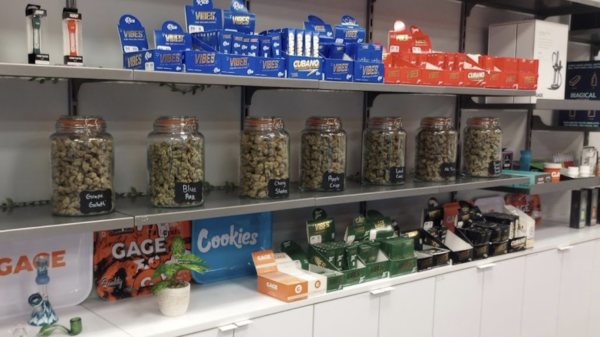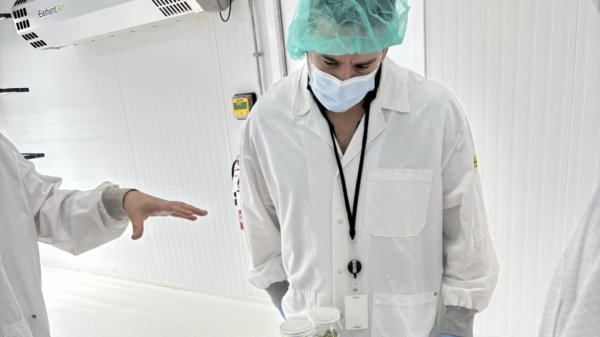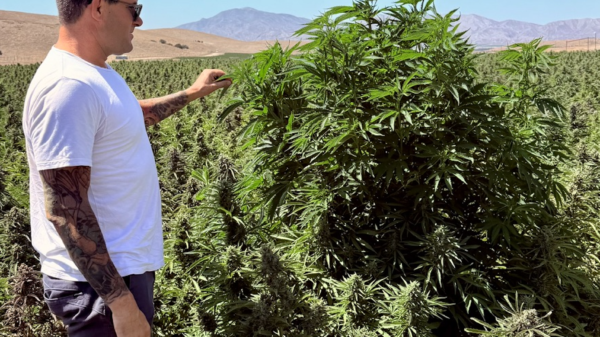The Government of Canada aims to help put an end to the logistical headache caused by individual cannabis packaging stamps for each province and territory.
Federal authorities announced that they would “explore a transition” to a single, national stamp in the 2024 Fall Economic Statement released on Dec. 16. More details will be revealed in the upcoming 2025 budget, to be released in February.
The current stamping system is one of the foremost problems plaguing the industry, the Cannabis Council of Canada (C3) says. The organization, which is the largest lobby group for the industry’s licensed producers, voiced its concerns about the problem to Ottawa government officials near Parliament Hill in October.
In an interview with Mugglehead earlier this fall, C3 President Paul McCarthy explained what a royal pain the current system was. He says that it wreaks havoc on the entire supply chain and is the most pressing issue faced by industry operators aside from the unreasonably high tax rate.
“If you’re running product off of a line and you have to hit it with a different stamp depending on where it’s going, you’re trying to figure out how much of this single product do I need to send to Ontario, to Quebec, etc. because they all need different stamps,” McCarthy said.
When a supplier’s plans change, it’s an expensive nightmare to deal with. Distributors have to buy province and territory-specific stamps in bundles of 500 and invest considerable time keeping track of them for CRA audit purposes.
“And you’re basing that on projections, but then when you get the actuals and they don’t match up, now you’re in the business of trying to take that individual product off the shelf, remove the stamp and so on.”
🆕: The Government announces an intent to explore a transition from #cannabis excise duty stamps specific to each province and territory to a single, national stamp. This would make it easier for regulated cannabis producers to ignite new business opportunities in other provinces
— Deepak Anand (@_deepakanand) December 16, 2024
Read more: Canadian cannabis leaders bring their concerns to Parliament Hill’s doorstep
Read more: Organigram takes top Canadian market share position with Motif Labs acquisition
C3 is ‘profoundly disappointed’ with the statement
The council reiterated its stance on the stamp subject in a blog post on Monday.
“Arbitrary measures, such as the requirement for 13 separate excise stamps, create logistical complexities and unnecessary costs throughout the supply chain,” the organization said. Streamlining regulations wouldn’t cost the government a dime and would stimulate the industry’s various businesses while creating jobs, C3 added.
Canada’s cannabis council is quite disheartened by the lack of attention given to the sector in the new economic statement overall.
“This punitive tax structure makes it impossible for legal cannabis businesses to compete with the illicit market,” McCarthy said in the post. “Their unfair taxation policies are creating an unsustainable environment for legal businesses, forcing many to close their doors.”
Others have voiced their discontent with the stamping system as well, including Pure Sunfarms. The Village Farms International Inc (NASDAQ: VFF) subsidiary says fixing it should be priority number one before tackling the larger tax problem.
“A change like this can make it easier for us to operate and become more profitable,” Pure Sunfarms President, Orville Bovenschen, told StratCann in an interview earlier this year. He says it’s a realistic goal to achieve before facing the broader taxation problem.
You may have heard the Cannabis industry is struggling, but not be aware of some of the challenges (some which could easily be rectified).
Watch this video on the excise stamp problem and practical, easy to implement solutions by the Canadian Cannabis Council. #bcpoli #cdnpoli pic.twitter.com/c6PV8YtHal
— Matt Birmingham (@MattBirms) October 3, 2024
rowan@mugglehead.com














